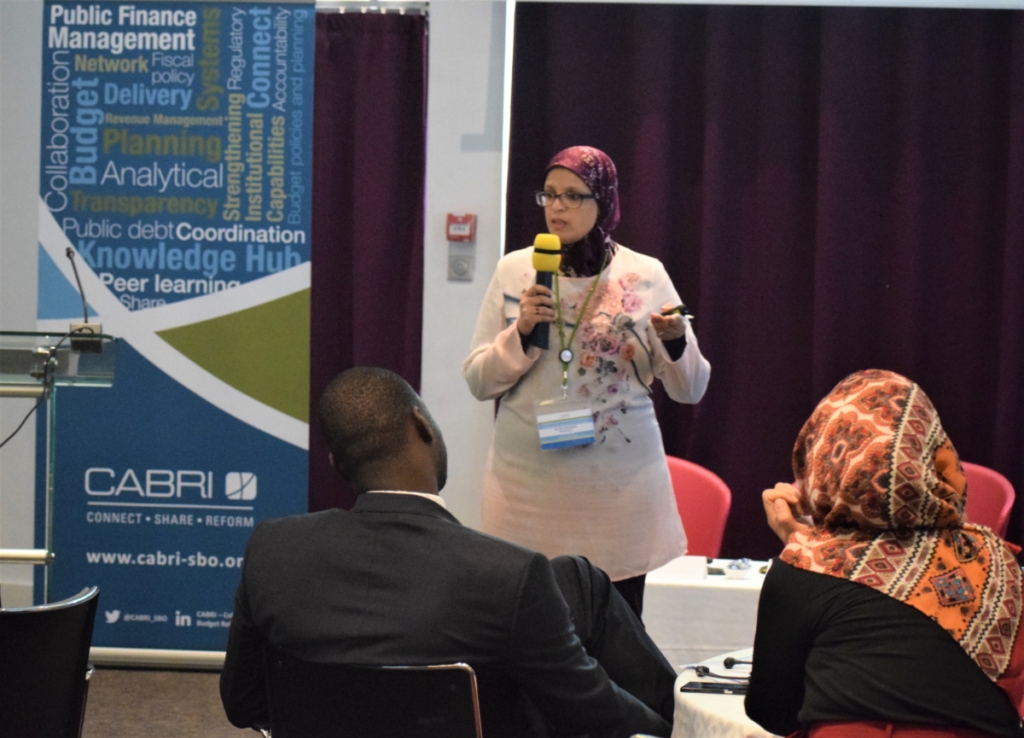Following her participation in the CABRI workshop “Appropriating and diffusing of programme-based budgeting”, Mouna Bengrine, Head of the budget reform department, Morocco's Budget Office, shares in this blog her experience implementing programme-based budgeting.

Public finance reform is an important driver for modernising the State. The purpose of public finance reform is to improve the organisation and functioning of the State and to make public interventions more transparent, effective and efficient.
In order to achieve these ambitious goals, Morocco chose to set up a performance-and programme-based budgeting system. The Programme-based budgeting reform came into effect in 2018, after the enactment of the Budget Framework Law in 2015. Its objectives are as follows:
- The transition from a classification based on the nature of the expenditure to a classification based on the destination of the expenditure (presented in budget programmes and projects/sub-programmes;
- Budget appropriations for public policy programmes associated with performance indicators.
- The accountability of government departments with regards to budget management, allowing managers to enjoy some flexibility to attain their objectives;
- Performance and accountability assessment of government departments, as to the achievement of their public policy goals.
In view of the limited budget allocations to certain government departments and institutions [1], several public policies have been grouped into single budget programmes to avoid budget fragmentation and allow budget managers to have some fiscal space within the programme. These programmes had to be subdivided according to department strategies, which made it necessary for departments, particularly those that had never developed a strategic document, to take advantage of the reform to rethink and develop clear and costed strategies with specific deadlines.
[1] Whose value for the ministry or institution is important but have a budget of less than 0.1% of the estimated budget.
When dealing with a performance-based budget, it is natural for some departments to set goals related to the activities or products (outputs) within their sphere of control, rather than to the delivery of efficient social services. With this in mind, Morocco initially decided to use existing goals and indicators as a basis and to modify them, aligning products with the resources (inputs), in order to assess the efficiency of public expenditure. However, aware of the need for a good performance measure, the departments begun developing performance indicators linked to the effectiveness and quality of service delivery.
The Budget Framework Law did not exclude any department or institution from Programme-based budgeting reform. Consequently, some departments did not really lend themselves to a measure of performance in its three dimensions (socio-economic cost-effectiveness, efficiency, quality of service), as they do not provide services/public services and do not carry out policy interventions. Hence, Morocco had to develop a different concept of performance for these departments in order to define efficiency indicators, and, to a lesser degree, activity indicators.
Moreover, the Budget Framework Law does not cover Public Institutions (PI) with revenue transfers or State subsidies under the Programme-based budgeting reform. Nevertheless, these PIs implement line ministries’ public policies on behalf of the State. In order to obtain a comprehensive assessment of public policy performance, Public Institutions were invited to adopt a budget classification by destination, just like the State, and for PI that contribute to the implementation of line ministries’ programmes, to breakdown departments’ performance.
The results from the first year of the full implementation of Programme-based budgeting are encouraging and evidence shows a real involvement on the part of government departments as well as the establishment of a results-based culture within the Moroccan public administration.
However, there is still much room for improvement:
- With regards to technical challenges, there is need for undertaking programme and performance framework review exercises as well as implementing strategic planning and performance measures at the level of decentralised services while reinforcing their decentralised powers.
- In terms of governance, the functions and organisational structures of ministries should gradually evolve to ensure their consistency with budget programmes. The role of Permanent Secretaries should also be consolidated to allow the transformation of their ministries and mobilisation of resources to attain their objectives within the prescribed time limits.
- From a cultural and political perspective, there is a need to strengthen change management processes by seeking synergies between the various stakeholders (Finance, Court of Auditors, Parliament) and to boost the role of Parliament in monitoring the effectiveness of public action.